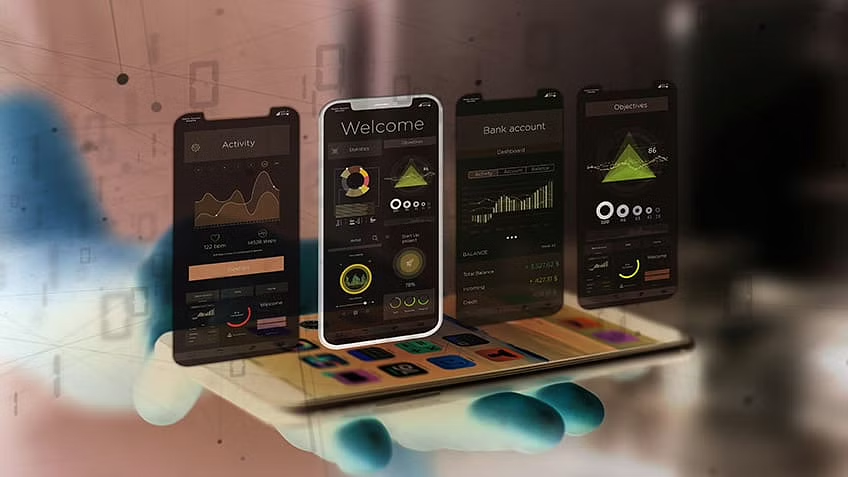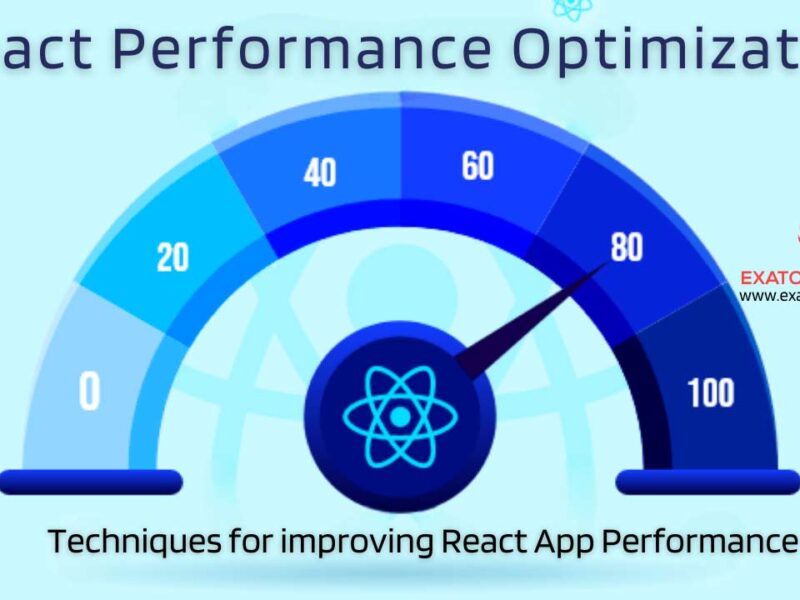If you want to build a mobile app to capture the attention of users. In that case, you must focus on selecting the right technology, programming language, UX design tools, and, most importantly, one of the top mobile application development companies to create a robust, innovative, and user-friendly app for your business needs.
With various mobile programming languages to select from, you must examine a variety of criteria, including benefits and negatives, as well as the language’s popularity, before deciding on the most popular mobile app. After selecting the best mobile programming language and developing a business app, you enter the marketing stage, which necessitates a suite of top marketing applications to scale up your development efforts.
In this blog, we have compiled a list of the top mobile app programming languages to assist you in rapidly selecting the finest and getting started with your mobile app. But before diving into top mobile app development programming languages let’s understand the types of mobile apps.
Types of Mobile Applications
Before deciding on the best app coding language for your mobile product to develop the finest code for apps, consider the many mobile applications available on the market. There is an option.
1. Native applications
The Native app is designed for the device’s OS and may be accessed via the app launch icon. These programs are referred to be native since they are created in the platform’s native programming language. The Android coding language is Java, whereas the iOS native language is Objective-C or Swift Mobile web applications.
Mobile web apps are only sometimes mobile apps. These are web pages that have the appearance and feel of native applications. A web application is, by definition, a website that has been modified and optimized for any smartphone. To utilize it, all you need is a browser on your device, its URL, and an Internet connection (thanks to it, information in this type of application is updated).
There are various advantages of using native apps:
- Can fully utilize the mobile device’s functions, such as the camera, GPS, and push notifications.
- They can be mainly built for the user interface of the mobile operating system, resulting in a superior user experience.
- They are available for download via app stores such as the App Store for iOS and the Google Play Store for Android smartphones.
However, native apps have several drawbacks:
- They require two independent development teams — one for each operating system — they can be more expensive to produce than other sorts of apps.
- Because each operating system has its own rules and principles, they may take longer to build.
- The operating system has its unique updating mechanism, it might be more challenging to update.
2. Hybrid Apps
They are a hybrid of native and online programs. They, like native applications, may be launched from within the app and exploit different aspects of the device on which they are installed.
Hybrid applications are a cross-platform combination of online and native apps that have access to smartphone features. These apps are only available on platforms such as Google Play and the App Store.
Their platform, like that of web apps, is HTML5. They are handled by the browser, which is incorporated into the program.
There are various benefits to hybrid apps:
- They are often simpler and faster to create. They’re developed using web technologies, which have a larger developer pool, which can save money and time to market.
- Developed to function on a variety of mobile devices, such as smartphones, tablets, and laptop computers.
- Can take use of the most recent platform-specific capabilities.
- Available for download via app stores such as the App Store for iOS and the Google Play Store for Android smartphones.
However, hybrid apps have some drawbacks:
- Because they rely on many technologies, they might be less stable than native programs.
- They may be less responsive than native apps because they must first communicate with the browser interface and the JavaScript engine before connecting with the operating system.
- They must be compatible with different operating systems, they might be more complex to update.
- Finally, they may be less appealing than native applications since they lack access to native devices like the camera and GPS.
3. Web Apps
A web app is a program created with web technologies such as HTML, CSS, and JavaScript. Web apps are often built with a framework such as Angular, React, or Vue.
Because of the server/client aspect of HTTP-based interaction, web applications can be even less responsive than hybrid apps. Every request must be made to a server, and the client (the browser) must wait for a response. This is especially true when utilizing server-side technologies like PHP, Python, Ruby, or ASP: for each request, a script on the server must be performed before the answer is ready for the client.

Top Trending Mobile App Development Technologies
1. Javascript
“JavaScript will be useful as long as people utilize the internet,” William Ting once declared. it is ideal for cross-platform app creation, cross-platform mobile app development, and online surfing. It operates nicely outside of browsers and may be compiled from a broad range of computer languages. So JavaScript gets my choice for the finest programming language.

It is a prototype-based, lightweight, platform-independent language that supports dynamic typing and object-oriented programming. It can also check user input and client-side calculations, and it has built-in date and time methods.
2. Python
Python does not require an introduction. It is one of the most widely used mobile app development technologies in the world. Python, which is popular among all developers and favored by businesses, simplifies and accelerates mobile app development.
Python is a dynamic, object-oriented, high-level, open-source portable programming language. It has built-in debuggers for smooth app development, a large community, GUI (Graphical User Interface) programming capabilities, and several frameworks and libraries. The language is primarily used to create feature-rich and scalable mobile apps in a short period of time.
3. Flutter
Flutter is a Google-open and free framework that lets you construct native Android and iOS apps with a minimal codebase. It is a groundbreaking SDK for cross-platform application development that distinguishes itself by employing a revolutionary approach to building native-like programs. It’s an unequaled and trustworthy smartphone UI framework for rapidly designing appealing apps by expediting development.
Flutter is a complete and precise framework that includes widgets, a rendering engine, APIs for debugging and integrating, and tools to help developers create and launch stunning mobile apps. Several well-known companies, including Google and Abbey Road Studios, utilize flutter.
4. React Native
React Native, created and sponsored by Facebook, is a user-friendly, cross-platform application development framework quickly becoming the favorite choice among programmers. RN makes it easier to create mobile apps for Android and iOS. The best examples of React Native apps are from well-known companies like Tesla, Airbnb, Skype, and Amazon Prime.
React Native is among the top mobile app development technologies. It enables the creation of platform-specific versions of many functionalities, allowing for the easy usage of a single codebase across all platforms.
5. Xamarin
Xamarin is a cross-platform application development framework that can be used to create apps for both Android and iOS. The apps require fewer lines of code since they use the C# programming language. As a result, the coding process is faster. It also allows us to move scripts between platforms such as Windows and macOS quickly.
In Xamarin, an intermediate layer regulates the relationship between the core system code and the standard code. Programmers may create an environment with APIs, backends, components, and more by utilizing tools, frameworks, and computer languages supported by an interested community.
6. Swift
Swift is an Apple Inc. general-purpose programming language. Developers may use Swift on iOS, macOS, tvOS, Linux, and other platforms. The language is intended for use with the Cocoa and Cocoa Touch frameworks. Swift is used by around 58-60% of developers to create applications for startups or larger companies.
Swift provides cross-platform capabilities as well as an efficient development style. Its Playground option can let developers experiment with new ideas. Swift is an excellent choice for creating contemporary server apps. However, keep in mind that Swift does not facilitate the development of Android applications.
7. IoT
Consider a future in which you can manage anything with your smartphone. Oh, there’s no need because this world already exists. And it’s all owing to IoT technology. IoT, or the Internet of Objects, is the integration of all things online connected by a network system. Without question, IoT will be a significant driving force in mobile app development trends in 2022 and beyond.
The primary goal of IoT is to link a user’s home appliances or personal technology and synchronize data to provide a complete experience. Yes, it’s a fact that engineers are already working on methods to expand this capability into other jobs, such as food delivery, instant loading results, brand security, remote facility control, and so on.
It may be a game-changer for an eCommerce mobile app when app downloaders actively seek expediency and rapid services. To demonstrate the concept, the graph above depicts the constant expansion of IoT technology. With a projected $190 billion revenue this year, IoT will be a memorable competitor in the battle of mobile app development trends.

8. Ionic
Ionic is a popular open-source app development framework based on HTML. It is mostly concerned with aesthetics, such as the app’s feel, appearance, and user interface (UI). Ionic is a multi-purpose framework that allows businesses to create hybrid, cross-platform, and progressive applications. Choose Ionic if you have a short development timetable and a limited budget.
9. Java
Java is an object-oriented programming language that is older than virtually other technologies. It is a simple-to-learn and effective security language. To assist developers in creating various sorts of Mobile applications, Java provides several open-source libraries, strong community support, and detailed documentation.
10. Kotlin
If your startup company idea necessitates the creation of a complicated mobile app, Kotlin may be the best solution. It is a cross-platform programming language considered a newer version of Java and is completely compatible with it. Kotlin allows you to create Android apps since it is simple, secure, and provides comprehensive tool support.
11. JQuery Mobile
jQuery Mobile is a precise cross-platform mobile app development framework that enables the creation of platform-independent applications. Using JavaScript and HTML, this framework is used to create flexible online portals that can run on a variety of platforms, including smartphones, tablet devices, and PCs.
12. Apache Cordova (PhoneGap)
Apache Cordova, formerly PhoneGap, is a well-known developer-friendly application development framework. It’s a cross-platform application development framework that uses CSS3, HTML5, and JavaScript to create mobile apps. Cordova plugins enable developers to use smartphone hardware capabilities like GPS, cameras, and accelerometers to provide a native-like interface. The most notable features of Apache Cordova include a faster production strategy with a single code base and a third-party application management tool.
Conclusion
Exato Software’s mobile app development talents and track record distinguish it as a different mobile app development firm. We create feature-rich apps that excel in UI, UX, and functionality. Our mobile app development experts chose the frameworks mentioned above after careful consideration. As we approach 2023, modern frameworks will change the company.
Meanwhile, consider these options carefully for your future mobile apps. As a result, if you have the appropriate app concepts, now is the time to go into the development process.
If you do things perfectly, you will never have any regrets. So, we can satisfy your strategic and development demands if you want to combine your company’s business or operations with mobile apps. For further information, don’t hesitate to get in touch with us.



